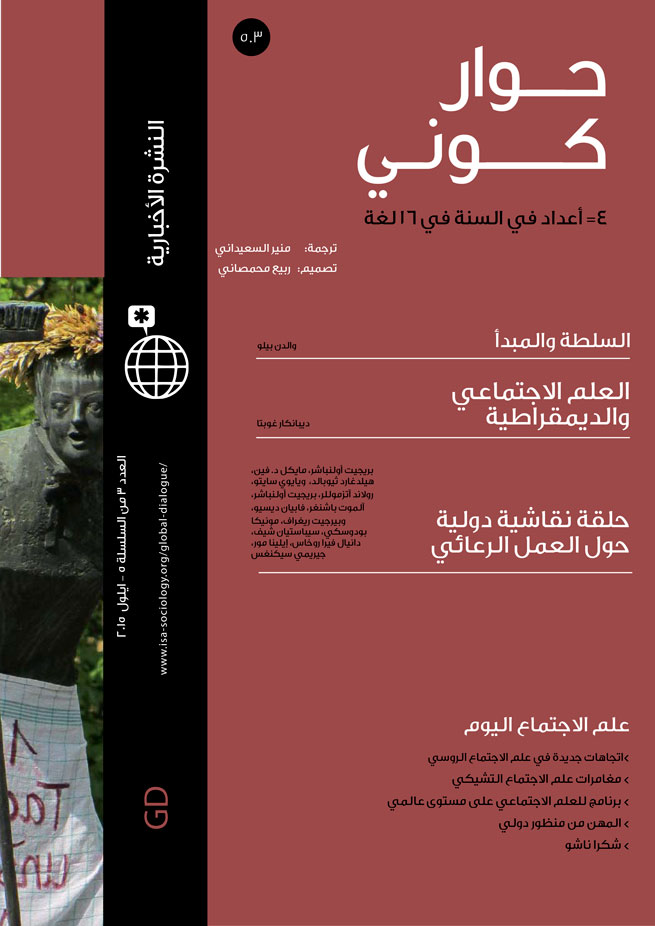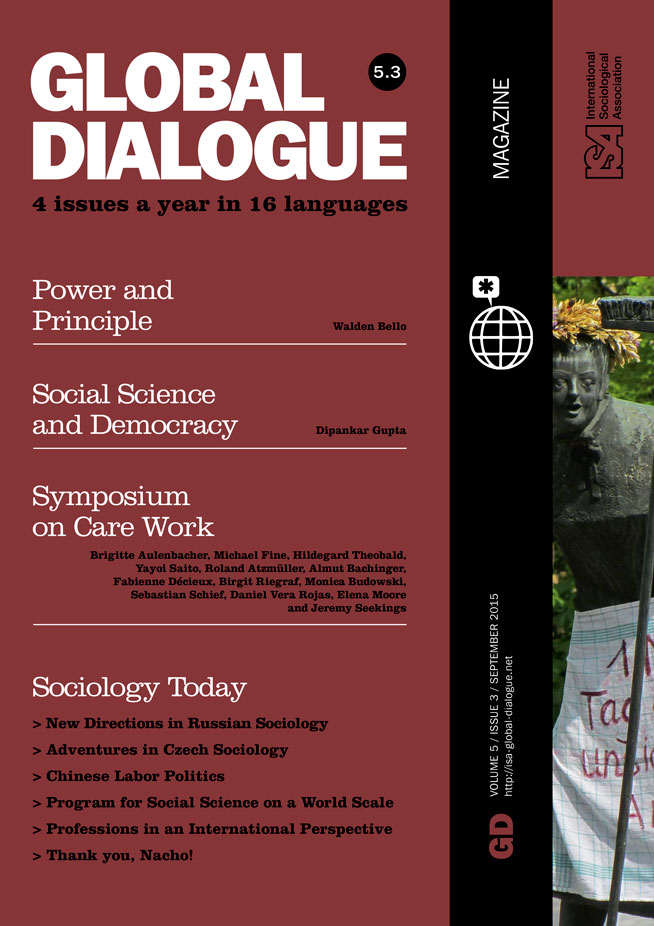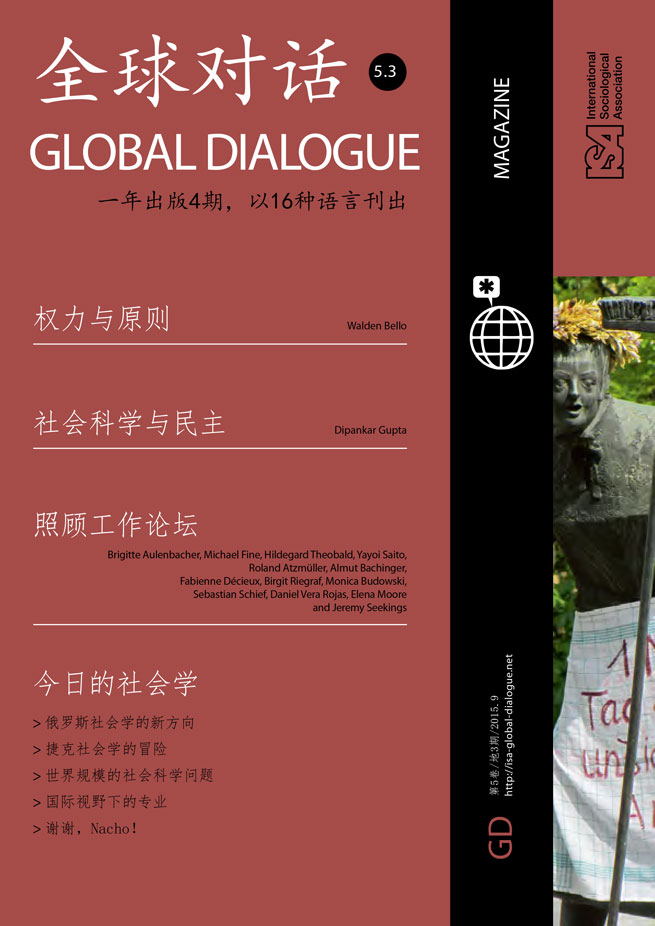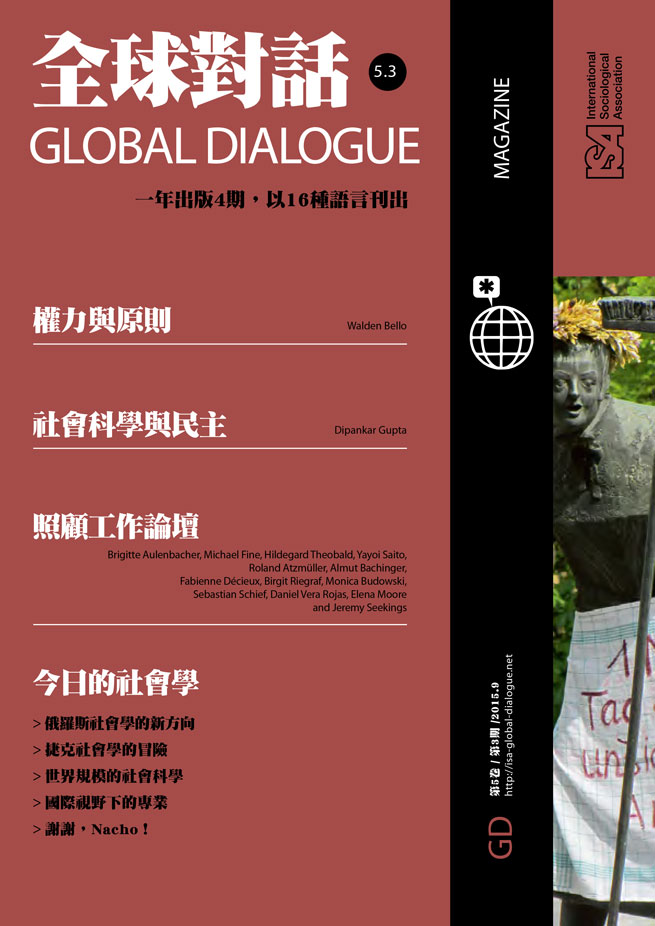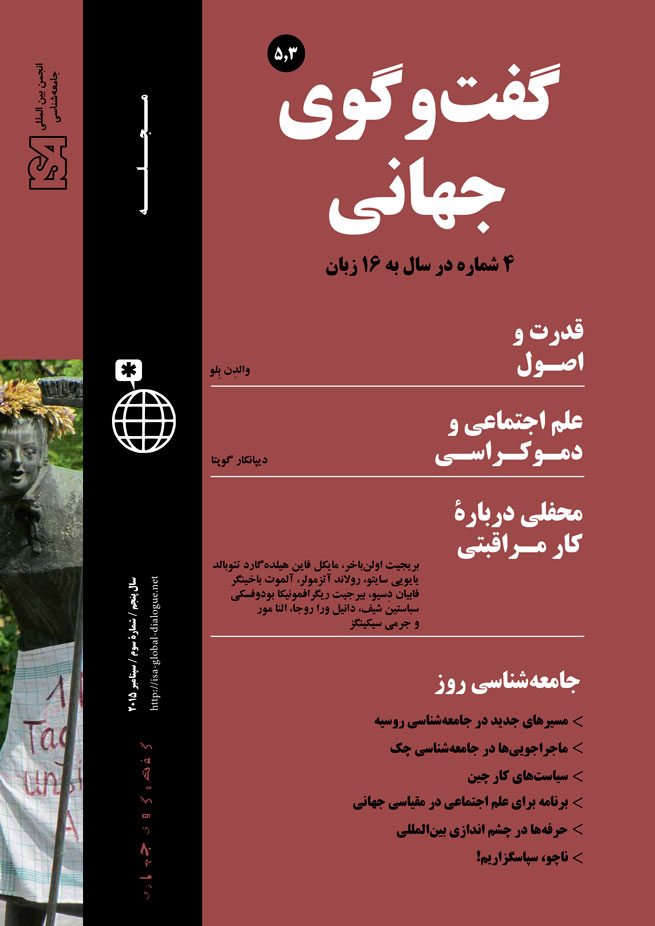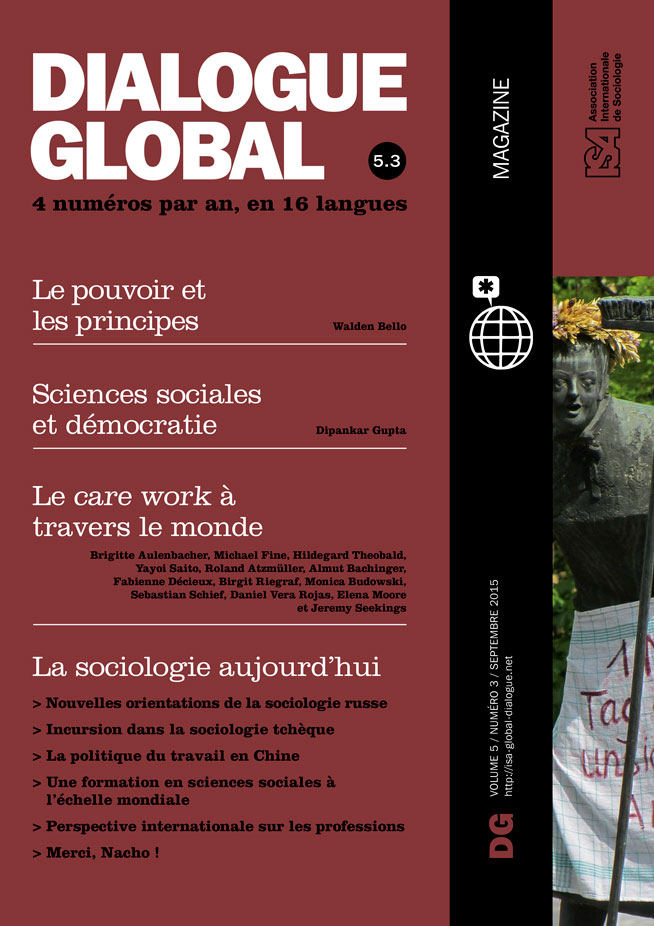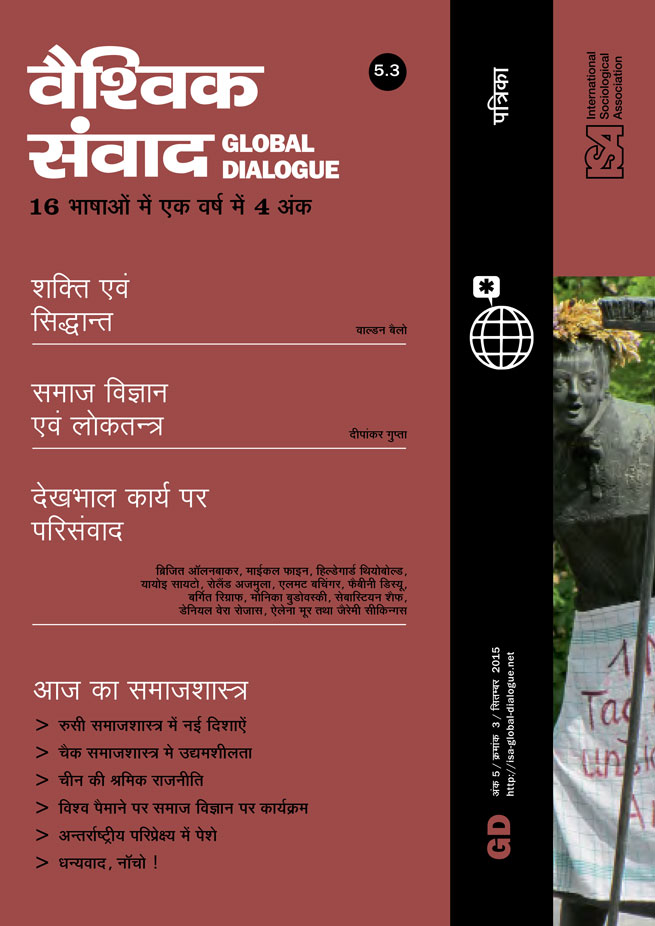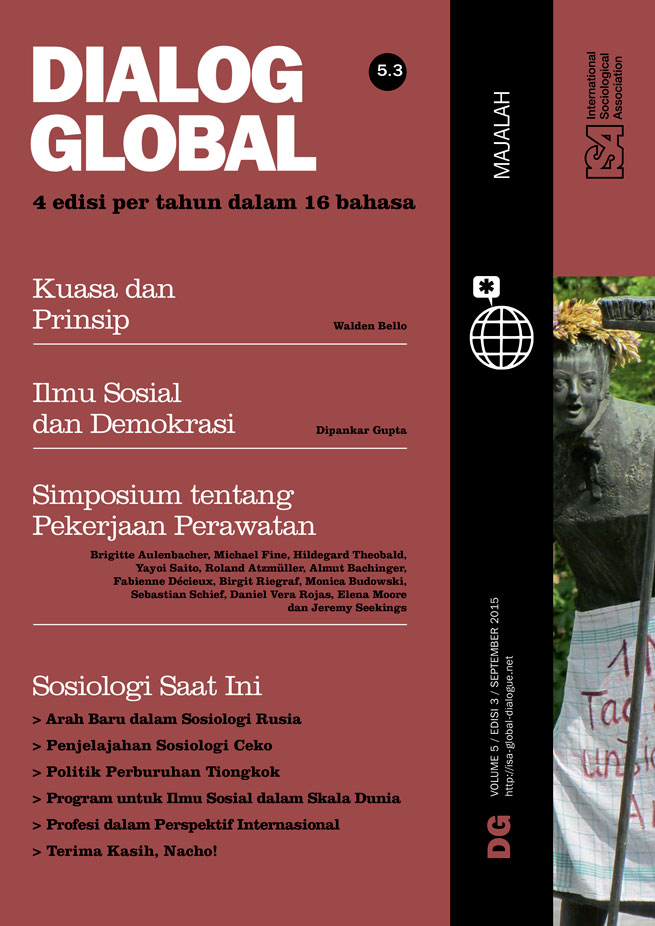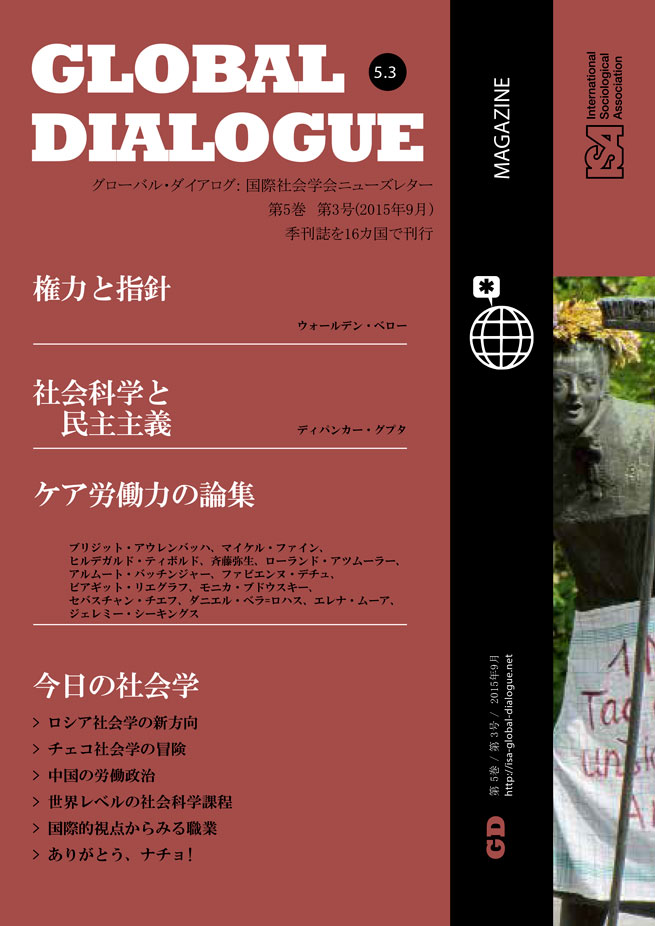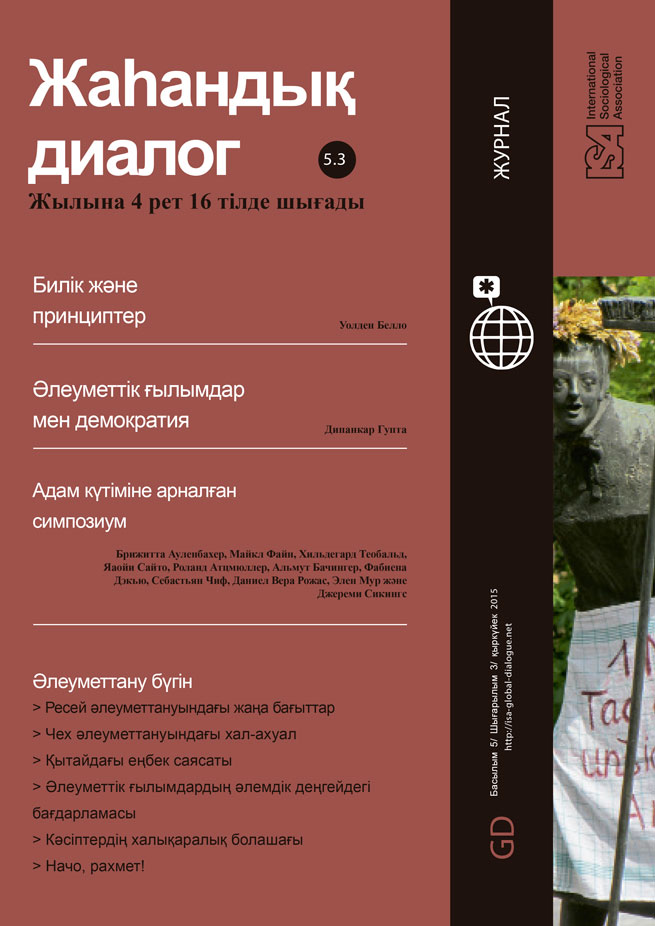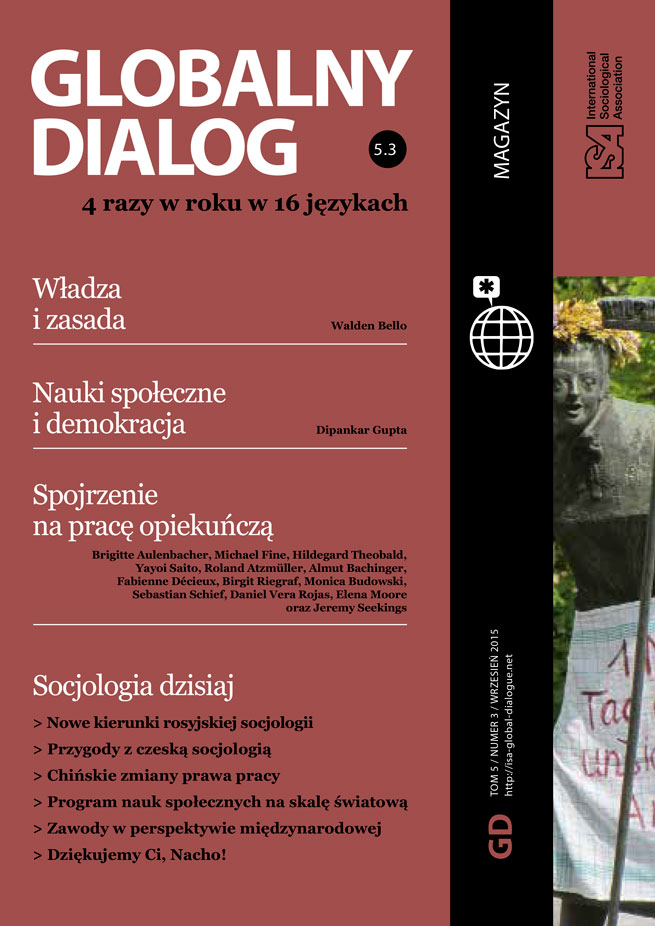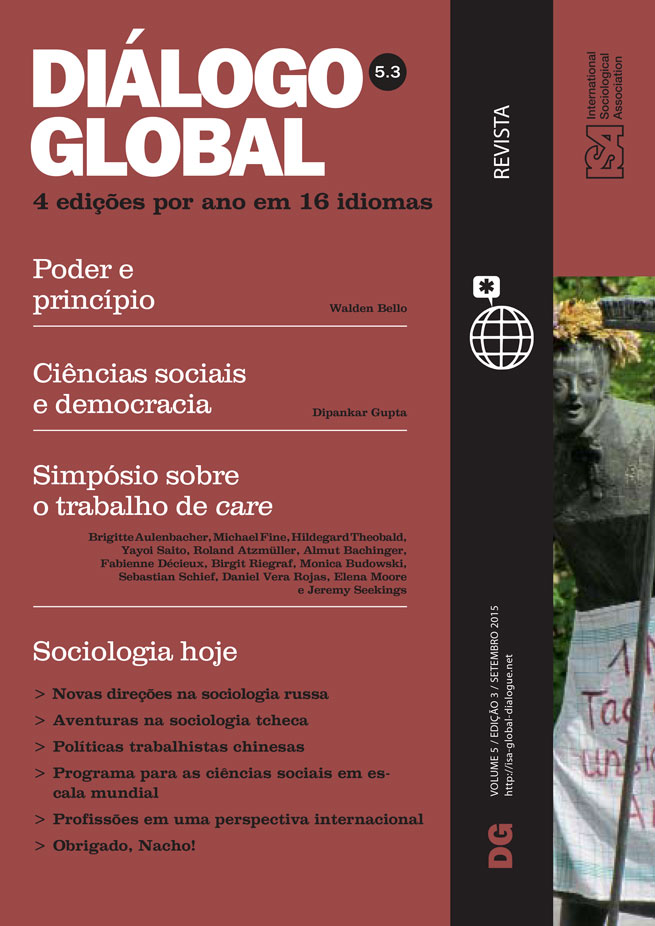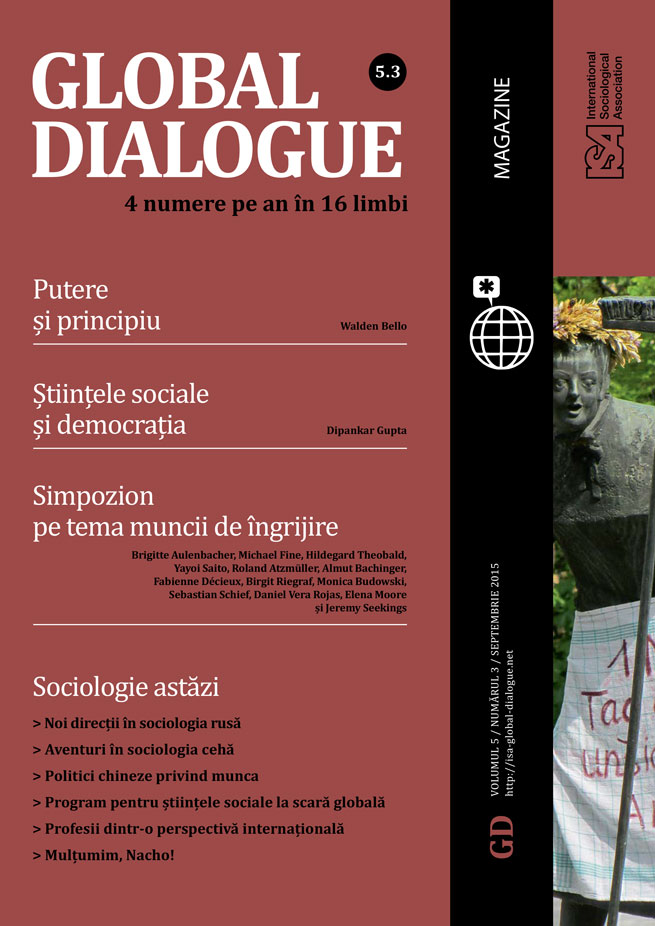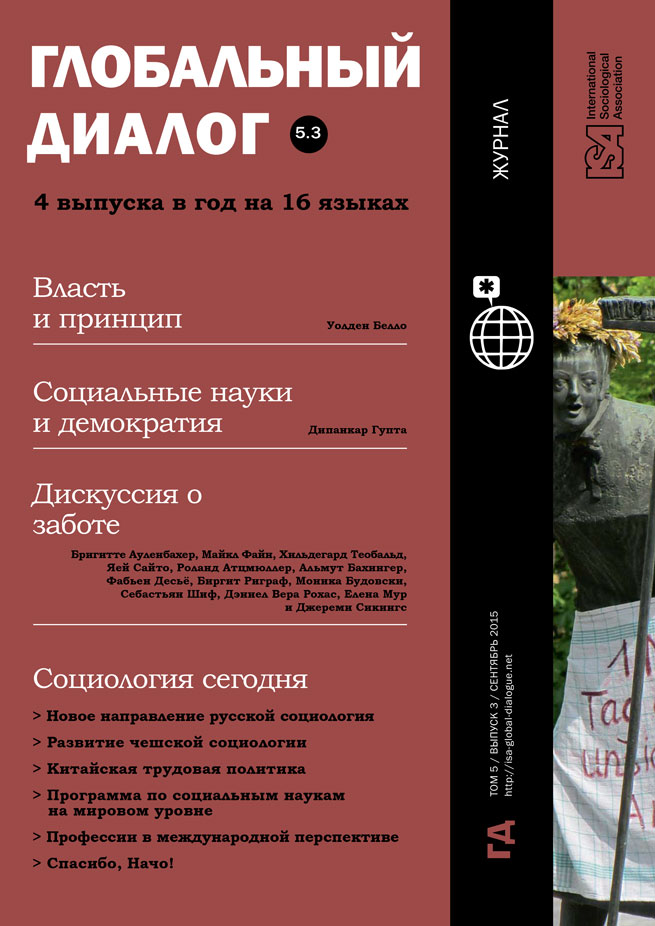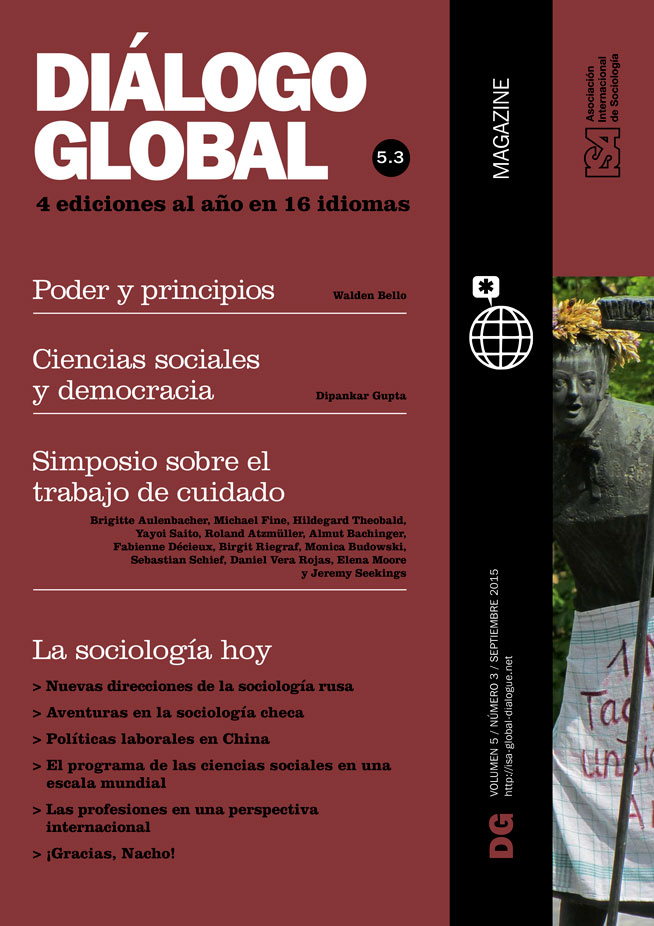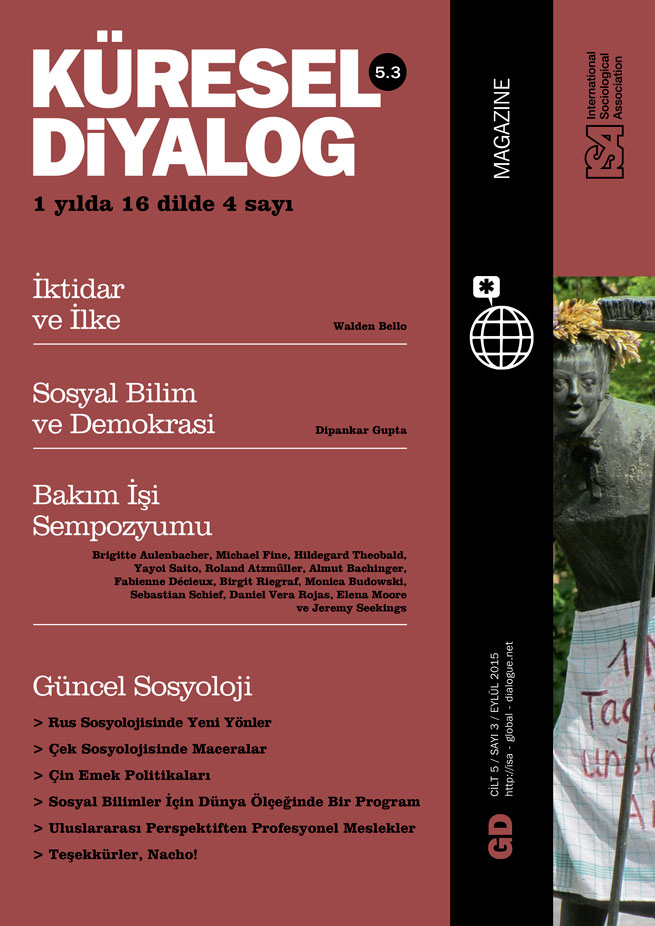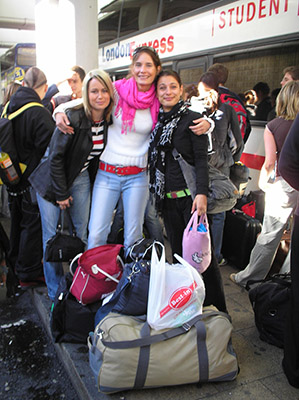Read more about Adventures in Czech Sociology

Remembering Roma Workers in the Czech Republic
by Kateřina Janků
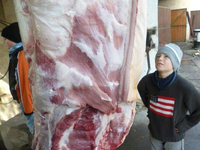
Homeschooling: Freedom and Control in Czech Education
by Irena Kašparová
August 08, 2015
“Au pairing” brings together paid domestic work undertaken by temporary migrants, cultural exchange defined by national and international regulations, and basic living arrangements. According to British regulations passed in 2004 and 2005, au pairs are young foreigners who stay for up to two years with families in order to learn English and learn more about the country. Au pairs are supposed to live “as part of family,” receiving food, accommodation, and “pocket money” – not a wage – in return for childcare and/or housework. Families are required to treat au pairs as equal. Immigration Directorate Instructions and agencies usually suggest treating them as family members.
From the early 1990s, au pair stays have become an important migration route for women from post-socialist Central and Eastern Europe, especially from Slovakia, which has one of the world’s highest per capita rates of au pair migrants. Media often portrays au pairing as an economic strategy to cope with difficulties of post-socialist transformation. Certainly, in the Slovakian media and everyday discussions au pairs are linked to economic hardship and high youth unemployment, but also to the high symbolic value of foreign languages and overseas travel.
Yet 50 interviews with Slovak au pairs undertaken during a year of participant observation in London during 2004 and 2005 quickly revealed that their motivations cannot be reduced to an economic strategy alone. Generally, the desire to work, to earn more money or to learn English was mixed with much more personal issues: migration decisions were related to relationships with parents, partners and friends. If one person said she became an au pair to avoid tedious and badly-paid factory work, another might explain she decided to go because she had just gone through an ugly break-up and could not bear staying in the same village as her former lover. The apparent economic advantage of an au pair stay (or even the prospect of its commodification in the future) often camouflaged more complex, and less obvious motives. In general, it was much more convenient to claim that one hoped to learn the language, than to say that becoming an au pair would allow one to escape a dead-end romance or a restricted life in one’s parents’ household.
Before migration, most Slovak au pairs lived in their parents’ households. Their au pair stays provided a perfectly legitimate means to gain independence: au pairs commonly viewed their stays as a period between leaving their parents and settling down (hopefully, starting their own families). They viewed their time abroad as offering a chance of adventure, experimentation and enjoyment. Au pairs did not send remittances back home, and were never expected to do so. Their earnings – that is, their “pocket money” – were spent as “pocket money” usually is, for fun, fashion, parties, and presents. Many also reported that a part of their earnings, though not most of it, was saved for the future or used for language learning. Many said in interviews that, in the future, they would have to be careful and save their money, or sacrifice their time and economic resources for their children. For now, however, it was important to have fun, experimenting with relationships and with what au pairs saw as a more advanced consumer culture.
Many au pairs described these experiments as part of a larger project: the stay abroad, becoming independent from one’s parents and relying only on oneself were lessons in growing up and self-development. Au pairs often compared their work to military service, which was still compulsory for men in the Czech Republic at the time of my research. For many women, au pairing was perceived as a kind of rite de passage, initiating them into adulthood by proving their independence.
This self-understanding has serious consequences for au pairs, since it prompts many to put up with situations they find oppressive. The equal relations between au pairs and host families recommended by legal regulations are hardly feasible under conditions of power asymmetry. Indeed, 82 out of the 86 host families for whom my informants worked did not fully comply with regulations: host families frequently demanded that their au pairs work more hours than they were supposed to, they failed to pay overtime, or they ignored the au pairs’ rights for free time or language learning. Some au pairs were expected to sleep in the same room or even the same bed as the children they were looking after.
Au pairs’ immigration status, the fact that they lived in homes which were also their “workplaces,” their lack of language fluency – combined with an ambiguous position within households where they simultaneously were and were not workers, guests, and temporary family members – left them particularly disadvantaged in negotiations over working and living conditions. For most au pairs, leaving an exploitative or unpleasant host family would mean facing three difficult options: finding a new host family, finding other employment in the UK or deciding to return to Slovakia.
Far too often, au pairs decided to stay even though they felt mistreated or faced exploitation. While some au pairs mentioned more pragmatic reasons for staying– such as not having money to travel back home, or lacking clear educational or employment prospects after an abrupt end to their employment – many felt they needed to prove that they could endure hard times. Several described staying in an exploitative situation as a test that proved they were adults, and that they did not need to run back to their parents as soon as things got tough. Paradoxically, structural inequality together with their commitment to growing up reduced their inclination to resist exploitation: the au pair’s effort to demonstrate personal maturity may in fact contribute to their disempowerment.
Zuzana Sekeráková Búriková, Masaryk University Brno, Czech Republic <burikova@fss.muni.cz>
This issue is not available yet in this language.
Request to be notified when the issue is available in your language.
If you prefer, you can access previous issues available in your language:
